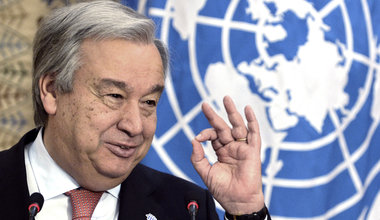THE SECRETARY-GENERAL: ON THE INTERNATIONAL DAY OF THE VICTIMS OF ENFORCED DISAPPEARANCES
Victims of enforced disappearances are deprived of their liberty, kept in secret detention and seldom released. Often their fate remains unknown; they are frequently tortured and in constant fear of being killed. Even if they are eventually set free, the physical and psychological scars stay with them for the rest of their lives. Moreover, the victims' families and loved ones suffer immense anguish.
Far from being a practice employed only in the past by military dictatorships, enforced disappearance continues to be used by some States. In the past year alone, the UN Committee on Enforced Disappearances and the UN Working Group on Enforced
or Involuntary Disappearance received 318 requests by family members across the world to take urgent action to find their loved ones. This figure is just a fraction of the thousands of cases that are never reported either because of security conditions
or because of a lack of knowledge of the existence of international mechanisms that can help.
In recent years there has also been an alarming rise in enforced disappearances perpetrated by armed extremist and terrorist groups.
The prohibition of enforced disappearance is absolute. The International Convention for the Protection of All Persons from Enforced Disappearance affirms unequivocally that the use of enforced disappearance is illegal under any circumstances, including state or threat of war, internal political instability or any other public emergency.
The Convention entered into force in 2010, has been signed by 93 States and ratified by 50, and provides a sound foundation for fighting impunity, protecting disappeared persons and their families and strengthening the guarantees provided
by the rule of law -- including investigation, prosecution, justice and reparation.
On this international day, I urge all Member States to ratify or accede to the Convention without delay and the States parties to the Convention to implement it.
It is time for the universal ratification of the Convention and an end to all enforced disappearances.
 UN
UN United Nations Peacekeeping
United Nations Peacekeeping




